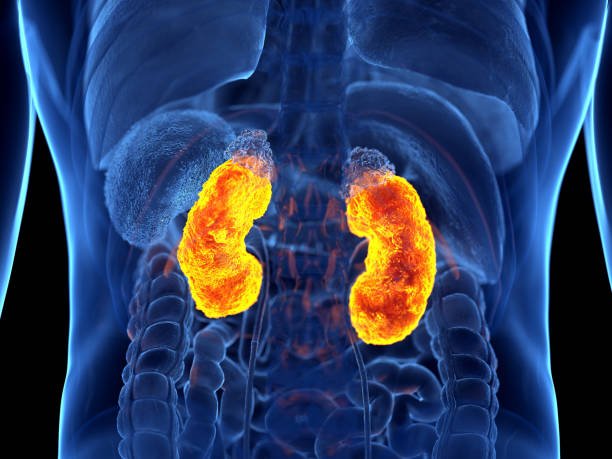The Impact of At-Home Kidney Tests
 Written By
Jaclyn P. Leyson-Azuela, RMT, MD, MPH
Written By
Jaclyn P. Leyson-Azuela, RMT, MD, MPH

In recent years, advancements in technology have reshaped healthcare, particularly in the realm of kidney health. The rise of at-home kidney test kits has given individuals an unprecedented ability to monitor their kidney function with convenience and accuracy. Among the most groundbreaking innovations is the introduction of using a smartphone camera and AI to interpret test strips, a technology that has revolutionized the way people assess their kidney health from home.
A Shift Toward Accessible Kidney Health Monitoring
Traditionally, kidney health assessments required visits to a healthcare facility for urine and blood tests. While effective, these methods were often inconvenient, time-consuming, and inaccessible for many individuals. Waiting for test results could also delay timely interventions and treatment plans.
At-home kidney test kits have changed this dynamic by offering:
- Convenience: Perform tests in the comfort of your home, reducing the need for frequent doctor visits.
- Speed: Obtain results in minutes rather than days.
- Comprehensive monitoring: Measure critical markers such as creatinine, urea, albumin, and red blood cells.
- Proactive health management: Detect potential concerns early and make informed lifestyle choices, like diet, hydration, and medication adherence.
The Role of At-Home Kidney Tests in Managing Chronic Kidney Disease (CKD)

Chronic kidney disease (CKD) affects millions of people worldwide, yet early detection remains a challenge. Identifying CKD in its initial stages is crucial to slowing its progression and preventing complications, including kidney failure.
At-home kidney tests play a vital role by enabling individuals to monitor key health indicators, such as:
- Creatinine levels – Assess kidney function and filtration efficiency.
- Estimated glomerular filtration rate (eGFR) – Estimate how well the kidneys are filtering waste. This needs a blood test and some kits provide an estimate for accuracy.
- Urine albumin-to-creatinine ratio – Detect early signs of kidney damage.
Tracking these markers over time can help users spot problems earlier, even before symptoms appear. Early intervention—including dietary changes, hydration improvements, and medical guidance—can significantly improve outcomes for those at risk.
See Related: Stages of Chronic Kidney Disease. Know the CKD Symptoms
How Smartphone-Based Computer Vision Enhances Accuracy
The integration of smartphone-based computer vision analysis has further advanced the capabilities of at-home kidney testing. Companies like Ribbon Checkup have developed mobile applications that use artificial intelligence (AI) to analyze urine test strips with a smartphone camera. This AI-driven approach offers several benefits:
- Eliminates human error – Reduces variability and inaccuracies from manual interpretation.
- Provides instant feedback – Users receive immediate results instead of waiting for lab analysis.
- Tracks health trends over time – Enables users and healthcare providers to monitor kidney function and make informed decisions.
By removing inconsistencies and standardizing test interpretation, smartphone-based analysis enhances the reliability of at-home kidney testing. Ribbon Checkup's at-home urine test is an excellent solution for anyone looking to take control of their kidney health with cutting-edge, easy-to-use technology.
Putting Health Control in the Hands of Individuals
One of the most transformative aspects of at-home kidney tests is their ability to empower individuals to take charge of their health. These tests benefit:
- Individuals with high-risk factors – Those with high blood pressure, diabetes, or a family history of kidney disease can monitor their kidney function more frequently.
- People managing existing kidney conditions – Regular testing helps track disease progression and effectiveness of treatments.
- Individuals with a history of kidney stones or cardiovascular conditions – Routine monitoring supports preventive health measures.
At-home testing doesn’t replace professional medical care but rather complements it. Seek urgent care if you experience blood in urine, persistent swelling, or sudden changes in blood pressure. Users can share their test results with healthcare providers, allowing for informed discussions about next steps, whether that involves lifestyle adjustments or additional medical evaluations. This collaborative approach enhances patient engagement and ensures more personalized care.
What’s Next for At-Home Kidney Testing?
With continuous advancements in medical technology, the future of at-home kidney testing looks promising. Innovations on the horizon include:
- CLIA-certified test kits – Further improving accuracy and reliability.
- Expanded biomarker detection – Offering more comprehensive insights into kidney health.
- Integration with electronic health records (EHRs) – Allowing seamless communication between users and healthcare providers for a more holistic approach to kidney care.
At-home kidney tests are not just a convenience—they are a game-changer in preventive health. Its affordability or access in low-resource areas to add balance. With the integration of AI-driven smartphone analysis and user-friendly test kits, monitoring kidney health has never been easier. Ribbon Checkup's at-home urine test is setting a new standard for proactive kidney care, making it easier than ever to detect potential issues early and take action. By enabling early detection and proactive management, these tools have the potential to improve health outcomes for millions of individuals at risk of kidney disease.
Learn also about abnormal urine Ph!
References
Understanding Urine pH: What Does a High Urine pH Indicate?The Complete Guide to At-Home Kidney Function TestsWhat Does Urobilinogen in Urine Mean?References
- Amy. (2023, December 5). New research offers hope of revolutionising approaches to monitoring kidney health. Kidney Research UK. https://www.kidneyresearchuk.org/2023/12/05/new-research-offers-hope-of-revolutionising-approaches-to-monitoring-kidney-health/
- Francis, A., Harhay, M.N., Ong, A.C.M. et al. Chronic kidney disease and the global public health agenda: an international consensus. Nat Rev Nephrol 20, 473–485 (2024). https://doi.org/10.1038/s41581-024-00820-6
- Kalyesubula, R., Aklilu, A. M., Calice-Silva, V., Kumar, V., & Kansiime, G. (2024). The Future of Kidney Care in Low- and Middle-Income Countries: Challenges, Triumphs, and Opportunities. Kidney360, 5(7), 1047–1061. https://doi.org/10.34067/KID.0000000000000489

Jaclyn P. Leyson-Azuela, RMT, MD, MPH, is a licensed General Practitioner and Public Health Expert. She currently serves as a physician in private practice, combining clinical care with her passion for preventive health and community wellness.


